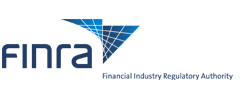
FINRA Fines Deutsche Bank Securities, National Financial Services a Total of $925,000 for Systemic Short Sale Violations
Both Firms Facilitated Customer Execution of Short Sales Through Direct Market Access Order Systems That Violated the 'Locate' Requirement of Regulation SHO
Washington, DC — The Financial Industry Regulatory Authority (FINRA) announced today that it has fined two broker-dealers a total of $925,000 for executing numerous short sale orders in violation of Regulation SHO and for related supervisory violations. FINRA fined New York's Deutsche Bank Securities $575,000 and Boston's National Financial Services (NFS) $350,000.
Regulation SHO requires that a broker or dealer may not accept or effect a short sale order in an equity security without reasonable grounds to believe that the security can be borrowed, so that it can be delivered on the date delivery is due. Identifying a source from which to borrow such security is generally referred to as obtaining a "locate." Locates must be obtained and documented prior to effecting a short sale.
Both Deutsche Bank and NFS implemented Direct Market Access trading systems for their customers that were designed to block the execution of short sale orders unless a "locate" had been obtained and documented. But FINRA found that Deutsche Bank disabled its system in certain instances and NFS created a separate system for certain customers – so that in both instances, the systems no longer blocked some short sale orders that did not have valid, associated locates.
"The locate requirement is an essential component of ensuring that short sales are executed properly," said James S. Shorris, FINRA Executive Vice President and Acting Chief of Enforcement. "The failure to design, implement and supervise systems that reasonably ensure that shares of a security are available to be borrowed before a short sale is executed significantly undermines the effectiveness of Regulation SHO."
FINRA's review of a sample of short sale orders at both firms revealed that some short sale orders entered through the Direct Market Access trading systems were released for execution without any evidence that a locate had actually been obtained.
In Deutsche Bank's case, the firm's systems sometimes experienced outages that prevented the importing of locate data and, as a result, short sale orders placed for execution were automatically rejected, even when a client had already obtained a valid and properly documented locate. FINRA found that during these system outages, Deutsche Bank disabled the system's automatic block, permitting client short sale orders to automatically proceed for execution without first confirming the presence of an associated locate.
FINRA found that in addition to its automated process, NFS created a separate manual locate request and approval process for approximately 12 of the firm's prime brokerage clients, which preferred to obtain locates in multiple securities prior to commencement of the trading day. Requests for, and approvals of, the multiple simultaneous locates were transmitted via email exchanges with account representatives on the firm's Prime Services Desk, and were not required to be entered into the firm's stock loan system at the time of approval. Further, prime clients were allowed to enter and execute their orders through automated platforms that did not have the functionality to automatically block execution of a short sale order that did not have a valid and documented locate.
FINRA also found that neither Deutsche Bank nor NFS performed a meaningful post-trade date review of short sale orders to identify short sale orders executed without a valid, associated locate having been obtained or documented.
Further, FINRA found that both firms implemented inadequate supervisory systems in connection with their Regulation SHO compliance. Deutsche Bank was aware that its system to block short sale orders in the absence of locates was periodically disabled over a period of more than four years (from January 2005 through September 2009), but failed to devise or implement a replacement procedure. Similarly, NFS created a flawed system for certain customers that failed to ensure that certain short sale orders had valid and timely locates associated with them. NFS's flawed system operated for nearly four years (from January 2005 through August 2008).
Investors can obtain more information about, and the disciplinary record of, any FINRA-registered broker or brokerage firm by using FINRA's BrokerCheck. FINRA makes BrokerCheck available at no charge. In 2009, members of the public used this service to conduct 18.5 million reviews of broker or firm records. Investors can access BrokerCheck at www.finra.org/brokercheck or by calling (800) 289-9999.
FINRA is the largest non-governmental regulator for all securities firms doing business in the United States. FINRA is dedicated to investor protection and market integrity through effective and efficient regulation and complementary compliance and technology-based services. FINRA touches virtually every aspect of the securities business – from registering and educating all industry participants to examining securities firms, writing and enforcing rules and the federal securities laws, informing and educating the investing public, providing trade reporting and other industry utilities, and administering the largest dispute resolution forum for investors and registered firms.
For more information, please visit our Web site at www.finra.org.
